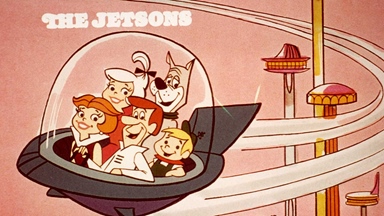Loading component...
At a glance
Meet George Jetson
“TV character George Jetson was ‘born’ last year, so 2023 would be his first birthday.
“We see George Jetson pilot his car to work two days a week, to work for just one hour a day. Looking at that in the context of the debates about the four-day work week is a good opportunity to think about how much we work and how much we will be likely to work in the future.”
Work-life balance
“Conversations about work hours are not that new – they go as far back as the early 1970s. Back then, though, the idea was for the same amount of time worked, but compressed into four days.
“The models that we see now are what is called ‘100:80:100’ – meaning that you get 100 per cent of your salary for only 80 per cent of your time, providing you meet 100 per cent of productivity.”
Workforce exhaustion
“The Jetsons’ future and the four-day work week that we have now differ, because they’re informed by two different assumptions. In The Jetsons, the assumption is automation.
“The context for a four-day work week now is an exhausted workforce – one that is struggling to have a better work–life balance, which also suggests that people are happier when they are not at work.
“Looking at this is an invitation not only to revisit how many hours or how many days we work per week, but also to consider how our time at work can be more meaningful.”
The spilt between work and home
“George, the father, goes to the office to work, because back then it was unimaginable that someone would just get up and go to the next room or to the kitchen table and work from there.
“We have this idea of separating work and home. Even though the technology that we see in The Jetsons would have enabled us to work remotely, at the time it was made it was inconceivable that we would work from home, so it shows two different environments.”
The "office" as a construct
“Funnily enough, however, we did work from home before we had offices. If we plot the history of work on a timeline, we would see that ‘the office’ has contained work for a very short period of time.
“Remembering that the office is an invention allows us to tackle the problem differently. “Instead of having this debate of home or office, hybrid or not hybrid, we just think about where people work, so we can expand the type of solutions that we have. We don’t have to tether work to the office.”
The "office" as a construct
“Funnily enough, however, we did work from home before we had offices. If we plot the history of work on a timeline, we would see that ‘the office’ has contained work for a very short period of time.
“Remembering that the office is an invention allows us to tackle the problem differently.
“Instead of having this debate of home or office, hybrid or not hybrid, we just think about where people work, so we can expand the type of solutions that we have. We don’t have to tether work to the office.”

